6 games that Stand the Test of Time
Over the years, video games have served as an escape for people of all ages, as well offer hours of fun all from a screen.
Over the years, video games have served as an escape for people of all ages, as well as offer hours of fun all from a screen. With such a vast backlog of games and a never-ending stream of releases on the way, it is easy to forget many older titles which still boast plenty of merit, be it the style of game they explore, the stories they tell or original takes on prevalent genres. The following six video games are but a few that you may have forgotten about or never heard of.
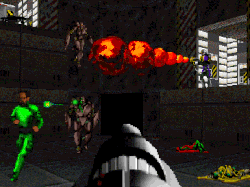
Marathon (Bungie, 1994)
Hailing from an era when almost all first-person shooters were still considered ‘clones’ of the classic trendsetter DOOM (1993), Marathon in retrospect was never going to have the widespread appeal of its source of inspiration. The game was only officially released on the Apple Macintosh, a computer rarely considered for anything more than a machine for work. However, work in recent years by a dedicated fan base has allowed for Marathon to be played on nearly all computer systems.
Being set in the far future, where the moon of Demios has been converted into a mobile space colony and is attacked by a vastly superior alien army, Marathon was the first first-person shooter to allow you to look up and down in a true three-dimensional space. Its long-standing impact on the ginormous first-person shooter genre and its incredible story hidden under the surface, worthy of the same recognition as proper science fiction novels, makes it worth a re-visit even nearly 30 years later.
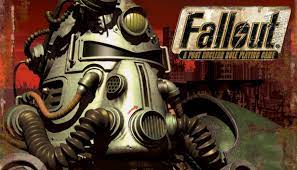
Fallout (Interplay, 1997)
Though I’m willing to bet most gamers have heard of Fallout 4 or Fallout 76 (the later titles developed and published by Bethesda Game Studios), I doubt many have played the original title. Fallout is an isometric turn-based roleplaying game and is a different beast from the Bethesda-published titles in all regards.
Set in California, in the year 2161, you play as a vault dweller – a descendent of those who took shelter in massive underground cities or ‘vaults’ when nuclear war erupted – who is sent to search for a water filtration chip after your own vault’s chip broke. The original Fallout is brutal, devoid of most color except for the oranges of the desert, faded beiges and yellows of fallen society. Its wasteland is an empty vista populated largely by mutant creatures and savage raiders. The game lacks much of the humor it became later known for. Unless your style of comedy is coffee black, most of its gags will go over most players’ heads. However, its impeccable and immersive art style and soundscape will have its players coming back over and over.
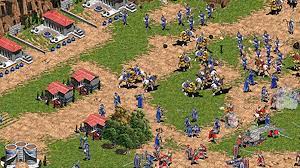
Age of Empires II (Ensemble Studios, 1999)
Around the end of the 1990s and for a few years after, the real-time strategy genre – that being games that enable you to move and direct units with all players acting at the same time – hit its peak of popularity. Chief among these, as proven by its many recent releases and expansions nearly 25 years later, was Age of Empires II. Taking place in the medieval age of history, Age of Empires II had you construct fortified cities and vast armies from near scratch, with the ultimate goal being the prosperity of your empire and the utter destruction of all others.
Though the premise is simple in concept and the first few minutes of every match a bit sleepy, every match will go entirely differently than the previous – different resources being more scarce or more common, the shifting strategies of your opponents, be they human or AI. This difference in playstyle each match ensures the game remains fresh for many, many sessions on. Its recent re-releases have made it highly accessible as well, even if you don’t have a PC.
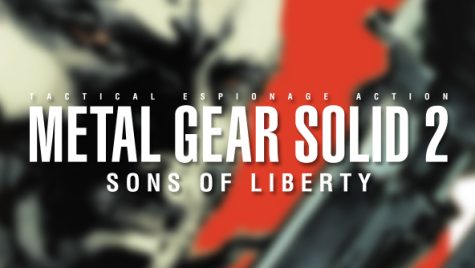
Metal Gear Solid 2: Sons of Liberty (Kojima Productions, 2001)
Imagine a world where private military corporations are allowed to run amok in third-world countries, classes are enforced throughout human society by purposeful systemic issues, artificial intelligences run the internet and wars are not fought with armies of soldiers but armies of computer-mounted analysts, their remote drones and control over information. No, I don’t mean the real world – the world of Metal Gear Solid.
Despite being billed as a ‘tactical espionage action’ game, Metal Gear Solid 2 is, in truth, a horror game. Not due to scary imagery or loud noises but its ability to have eerily predicted the future. The main characters, Solid Snake and Raiden, are both ex-military special forces and are forced to confront what that means and what place they have in a world increasingly controlled by whoever has the largest gun, the most money and especially the most influence over information. Though it is a little hard to get ahold of, requiring one of a variety of old consoles to play, it remains firmly worth a look both for its fun stealth, puzzle gameplay and its relevance as a cautionary tale.
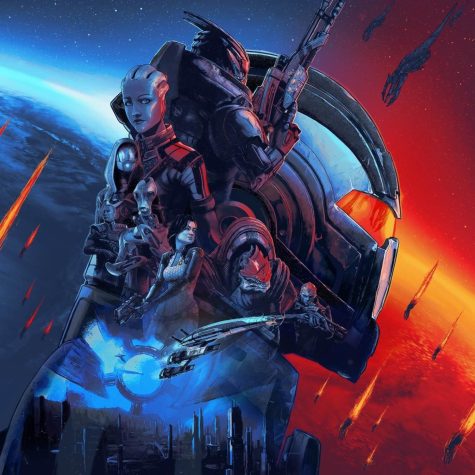
Mass Effect Trilogy (Bioware, 2007, 2010, 2012)
Though this is technically a three-game entry, to talk about one without addressing the whole series would be a disservice. Though the quality of all three games is partially because of this, it is also because of how interconnected the trilogy is – having you import your save from the previous title to the next to keep your choices consistent. This makes it so one player’s experience and story are radically different from another, rendering the three games endlessly replayable and notable in the roleplaying genre.
The Mass Effect trilogy is a combination of a roleplaying game and third-person shooter, where the main character, Commander Shepard, races throughout the galaxy in an effort to unite its many peoples to fight off a dangerous, lurking threat – the Reapers. Throughout the series’ lengths, Shepard recruits companions from all walks of life and deals with ethical choices you could very easily relate to real-world politics and moral debates. The setting is so rich with flavor and parallels our real world in many respects but it has the ambiguity and style to keep itself from coming off as preachy. Your Shepard is your own, be they courageous or dastardly, open-minded or conservative. Your companions receive some of the best character work in gaming. The series really is however you want it to be, defined by your choices.
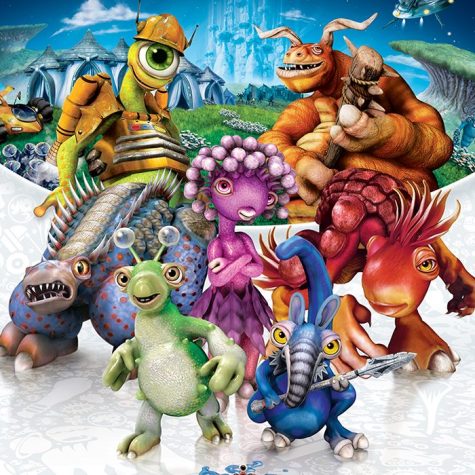
Spore (Maxis, 2008)
Spore was a particularly contentious title due to the intrusive oversight the game and its developers suffered from, with co-founder and lead developer Will Wright leaving the company only a year after release. Better known for their series The Sims, Maxis Entertainment was a studio that in their titles allowed you to create and manipulate the lives of humans and their settlements. Spore was designed to take this core concept to the next level.
In Spore, you create an entire species of your own – starting from the cellular stage to tribal and later global politics, to finally reaching and exploring the stars. It is an experience that at times can lift your awareness and perspective of the world and humankind to new levels. The game shows us the trials and tribulations our species has endured from the lens of a cartoonish and simplified version of a species’ history and future. Spore doesn’t revel in the uncaring scope of the universe but instead teaches you to cherish what you are and all the small things in life.










